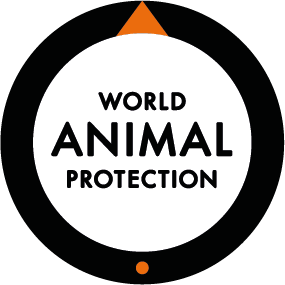What's happening in Europe?
Many people have the misconception that the problems associated with the wildlife trade are focused elsewhere, like in Asia and Africa, but the truth is very different. This is a global problem that requires us all to act to end the trade. It may look different depending on where you live, but the exploitation of wildlife occurs in every country and on every continent.
Whether as consumers of exotic animals as pets, or through the trade of wildlife for luxury meat and traditional medicines, the import of wild animals and their trade provides mechanisms for disease to emerge and spread.
The lack of proper regulations on the keeping of wild animals poses a risk for human health and biodiversity.
Paying the price in the UK
As active consumers of global wildlife, the UK is exposed to a lot of risk.
A lack of current data about the exotic pet trade in Europe leaves some gaps, but the data we have indicates that this type of wildlife trade here is much bigger than most believe.
For example, we know that between 2014 and 2018, over 3 million individual live wild animals were imported into the UK from 90 countries across nine global regions. That's massive.
The largest volumes of live wild animals were imported from North America and Asia and the most import records were from Europe and Africa.
The European Commission estimates the cost of controls and damage from invasive alien species in the European Union at approximately 12 billion Euros per year. In reality, this figure may actually represent only 10% of the real cost.
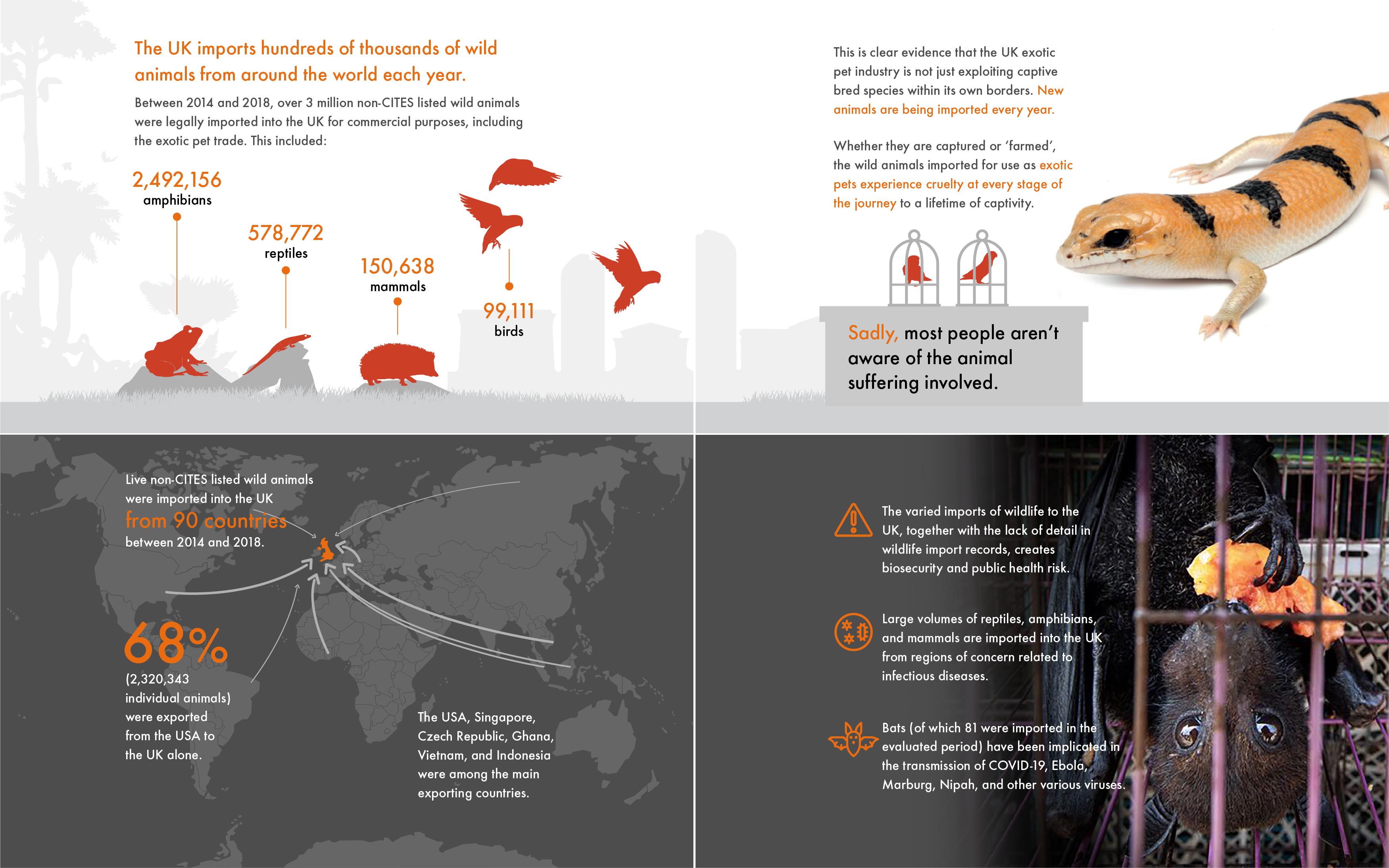
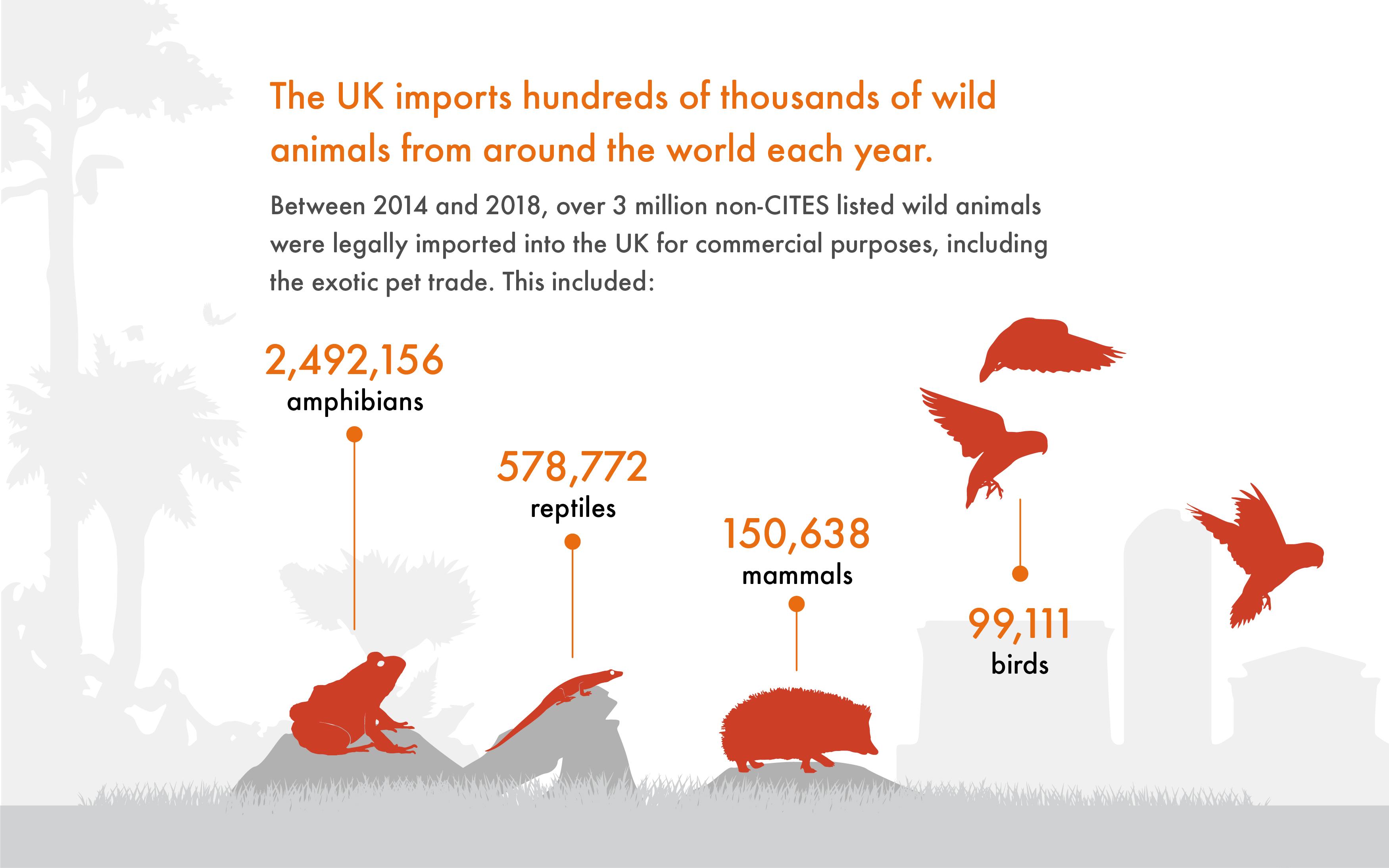
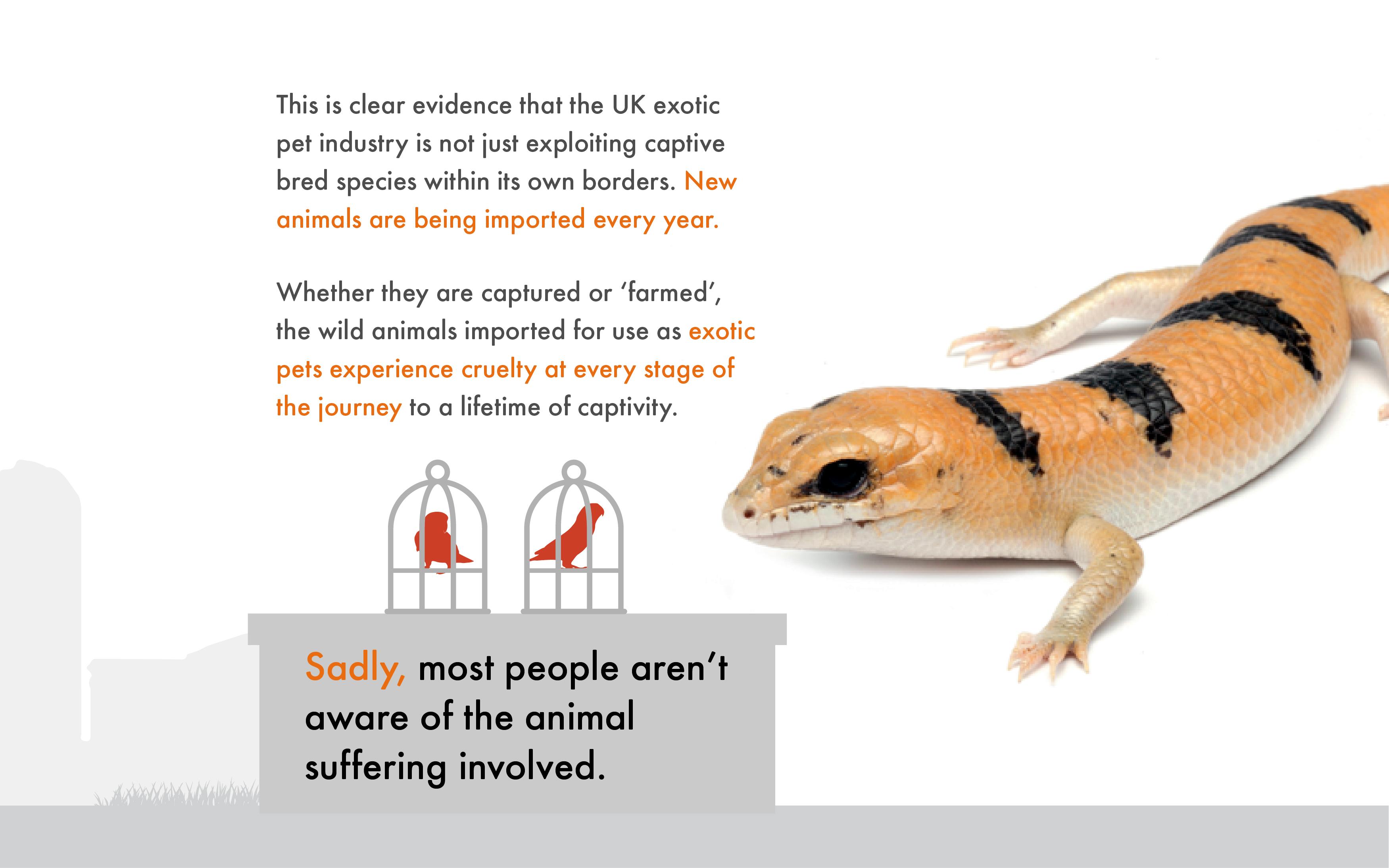
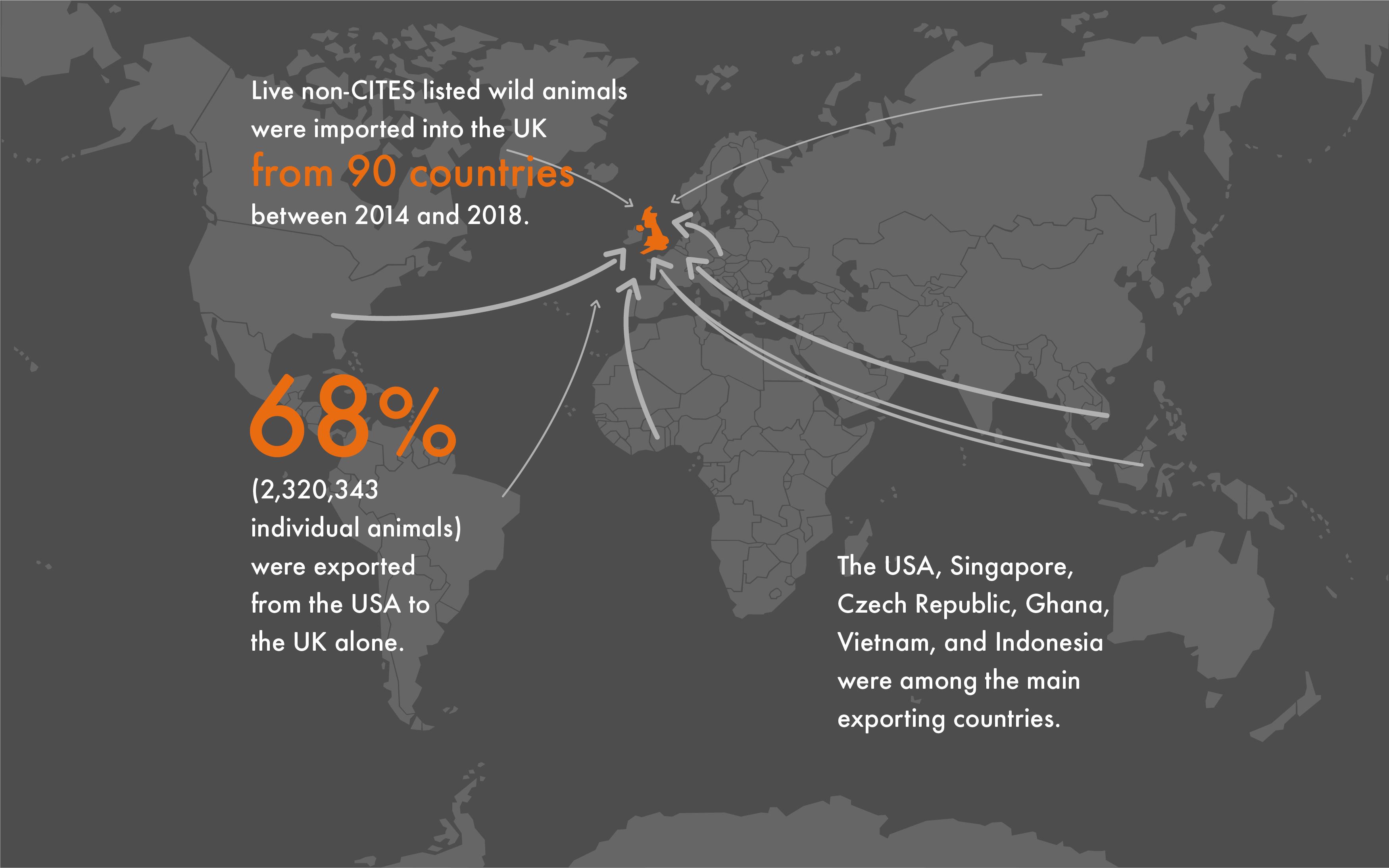
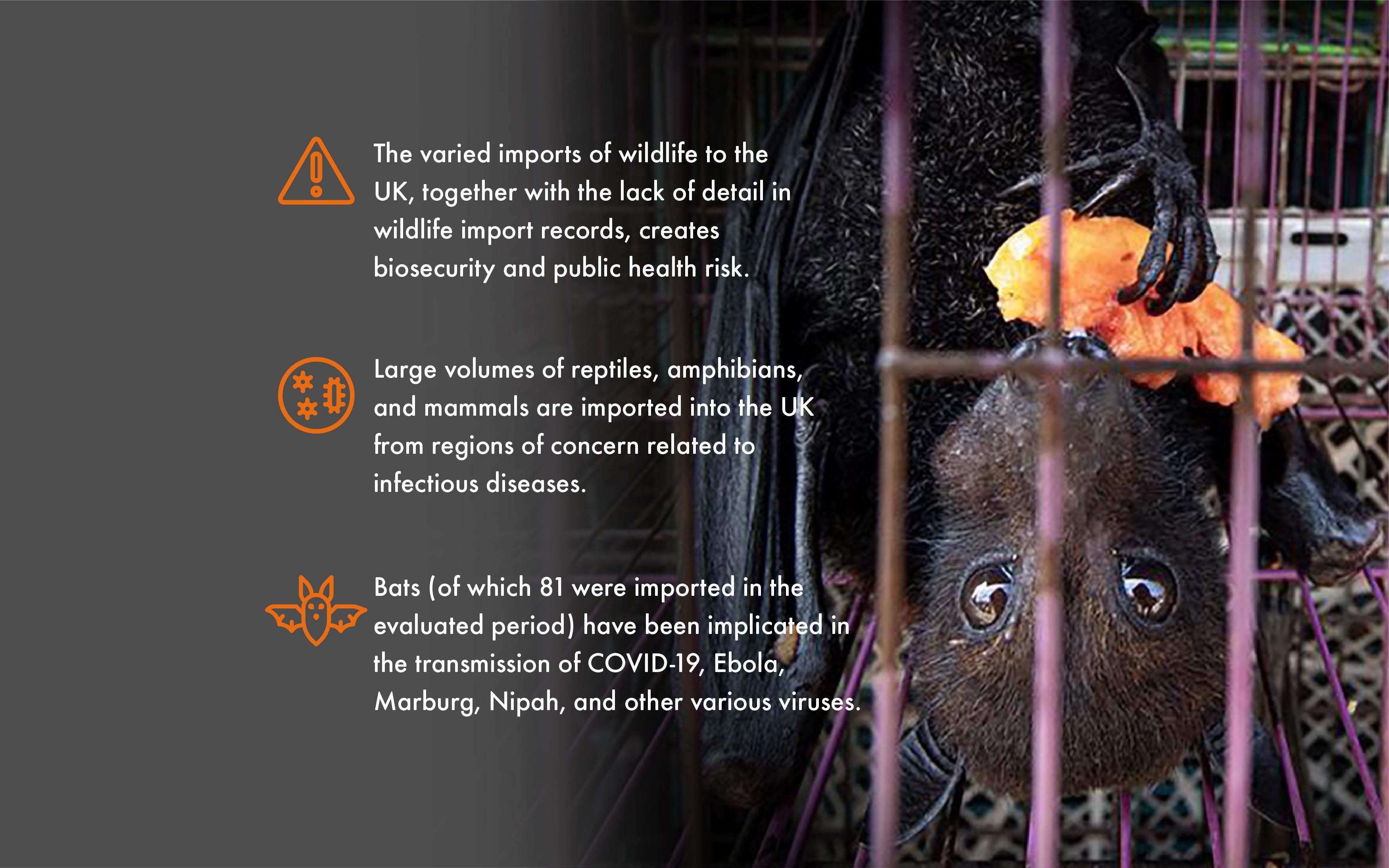
Time to end reptile fairs in the Netherlands
The Netherlands is the home of one of the largest exotic pet expos in Europe, the Houten reptile fair. Pet Expos like this one, along with the trade online, drives the sales of wild animals throughout the country. But a recent poll on behalf of World Animal Protection found that over 80% of dutch residents considers the trade in exotic pets at these fairs to be unacceptable.
Our investigation into Houten and expos in five other countries highlighted the poor conditions in which the animals were kept and revealed a number of concerns about the welfare of the animals for sale, including inadequate housing, access to water, enrichment and places to hide from the glaring lights. At these shows you can find a plethora of species for sale, from sugar gliders, to reptiles, to lemurs.
The current COVID-19 pandemic, along with regular disease outbreaks like Salmonella infections both highlight how proximity between wild animals in poor captive conditions and humans can be a dangerous cocktail. Poached from the wild or bred in captivity, wild animals kept in cramped cages under stressful conditions can create a lethal hotbed of disease, while causing enormous suffering and cruelty.
You have the power to fix this
You now know that the global wildlife trade is much bigger and much more dangerous than you thought it was. You know that for many species remaining wild populations are being driven to extinction. You know that millions of animals are suffering every single day. You know that the conditions these animals are forced to endure are ripe for disease. You know that diseases can be transferred between wildlife and humans. And as of this year, you know how truly devastating a new disease can be when it spreads through every community on the planet.
You can help stop the next pandemic by taking action today. Please sign the petition now so we can deliver it to the G20 summit in Saudi Arabia this November. Sign it and tell the world's leaders that you demand an end to the global wildlife trade before it's too late.
